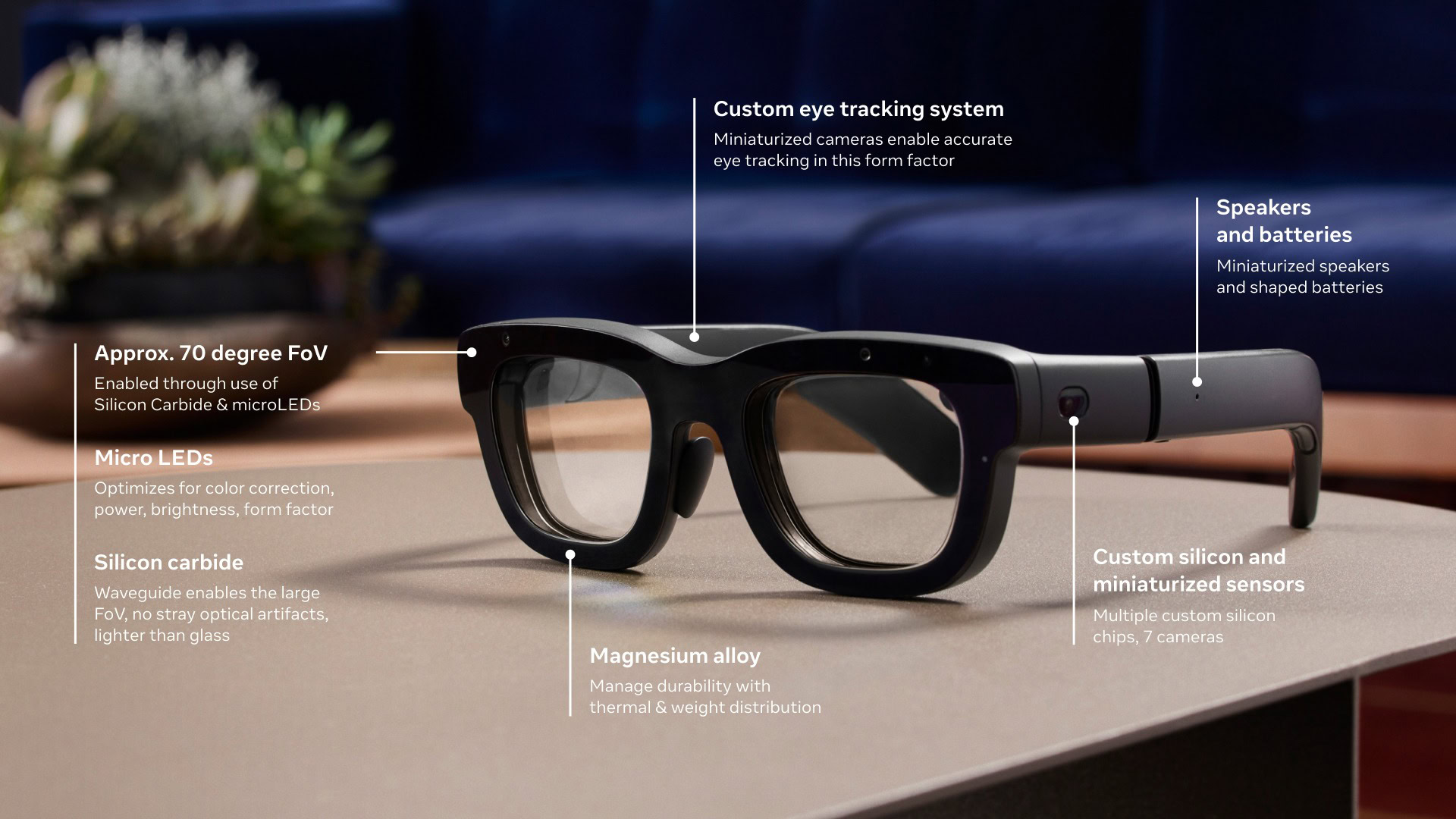Affiliate links on Android Authority may earn us a commission. Learn more.
Meta's first AR glasses are a spiritual successor to Google Glass, but you can't buy them
September 26, 2024

- Meta has revealed Orion, it’s first true AR glasses.
- Orion features micro LEDs that project onto silicon carbide, housed in a magnesium shell. It also has a separate wireless compute puck and an EMG wristband for gestures.
- Meta insists that Orion is not a research prototype but a polished product prototype, although there are no pricing and availability details yet.
Tech companies have been fascinated with AR, VR, and XR for decades, and many see it as one of the futures of computing. Google’s entry into the format came in the form of the much-marveled Google Glass, a pair of glasses that beamed information into a heads-up display right in front of your eyes. More than a decade later, we’re getting a spiritual successor in the form of Meta’s Orion AR glasses.
Meta’s foray into the smart glasses segment started with the RayBan Meta glasses, which are ordinary glasses that come with a camera and an AI assistant. The company had bigger ambitions, and we see them in Orion, a pair of holographic displays in the shape of glasses alongside an AI assistant.

Orion seems to be a more practical approach to AR than what Apple set out to achieve with XR on the Apple Vision Pro. However, Orion can still be considered a proof-of-concept prototype, while the Apple Vision Pro is a finished product that people can actually buy today (albeit at a princely price tag).
Orion sports microLED projectors that project onto optical-grade silicon carbide (not glass or plastic), allowing for a 70-degree FoV. The frame is built of magnesium, while custom silicon powers the AI and AR experiences in the glasses. Meta has also done a lot of engineering to keep the glasses small, consume less power, and generate less heat.
Meta has decoupled some of the computing into a wireless compute puck, while an EMG wristband helps with gesture detection, letting you easily swipe, click, and scroll. The glasses run the compute for hand tracking, eye tracking, simultaneous localization and mapping, and specialized AR world-locking graphics algorithms while the app logic runs on the puck.
The end result is a device that resembles a normal pair of thick glasses that can comfortably sit on your head for hours.
Orion can run Meta AI, allowing it to understand what you are looking at. It uses the Llama model that powers the AI experiences on the Ray-Ban Meta smart glasses, alongside custom research models, to demonstrate potential use cases for future wearables development.
You can take a hands-free video call with Orion (though you won’t be visible to them) and send messages on WhatsApp and Messenger. You can also play shared AR games and multitask with multiple windows without needing to bring your laptop along.
Meta still has a few challenges that it needs to address with Orion. It aims to tune the AR display quality further to make the visuals sharper. It also wants to optimize the form factor and make it even smaller. Finally, it intends to build at a scale that allows the company to make the product even more affordable.
As expected and mentioned, Orion isn’t available for purchase right now, so there are no price tags or details on availability. Meta insists it is not a research prototype either, preferring to call it a “polished product prototype” instead. The company hopes to release new devices that benefit from these R&D efforts in the next few years.
How do you like the Meta Orion? Do you think it will be the turning point for AR? At what price point will you consider purchasing the Meta Orion? Let us know your thoughts in the comments below!